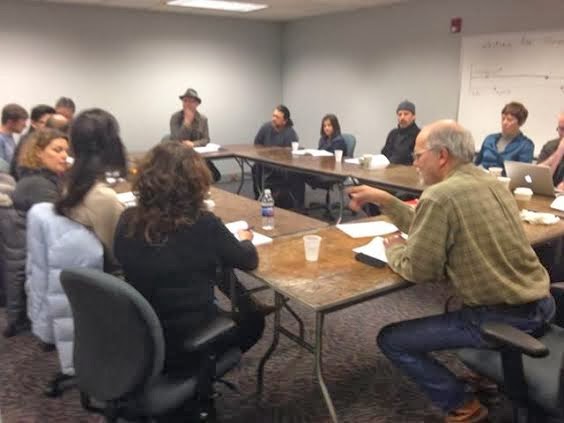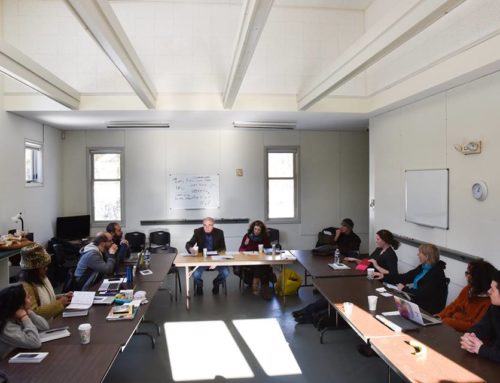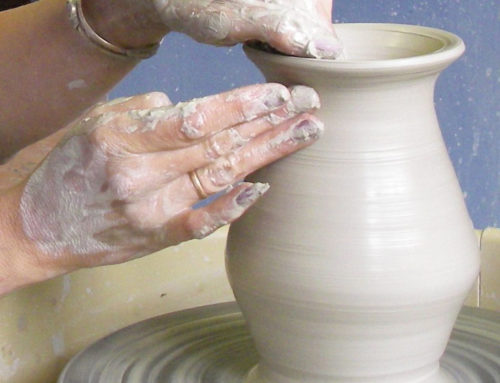In my last post, I talked about the low-residency MFA program in Writing for Stage and Screen I run offered by the New Hampshire Institute of Art. At the time, I was about to enter into a ten-day residency with faculty and students and other artists. Well, that residency took place earlier this month as we gathered for ten jam-packed days in Peterborough, NH. And in spite of a snow storm and some very cold weather, our collected group had a wonderful, productive, and stimulating time.
The highlight of the residency was the table reads of three new screenplays that continuing students had been working on during the fall semester. We invited ten professional actors in to spend three afternoons with us, including an Emmy Award winner and others who had played leads in significant indie films. We sat around this huge seminar table and, with the pros assigned the principle roles and students and some faculty assigned to minor roles, we tackled one script a day for three days. Then, following the reads, we spent the rest of each day discussing the project–what worked and what didn’t. The student writers heard extensive feedback about what everyone heard and experienced with each script. As a result, the writers gained invaluable insights and what the next steps might be in making adjustments, additions, and other tweaks to their screenplays.
What was most gratifying for me, however, was the quality of the drafts being read and the commitment and considerable talent that the actors brought to the table as we tested these new works. These afternoons were magical in the sense that they were a coming together of collaborative artists in our fields who were all focused and dedicated to bringing these scripts to life. And the group effort succeeded in spades. It’s what we love to do most–sharing our talents and our work and then discussing it intelligently and with sensitivity. And as any writer for stage or screen that actually develops a productive career will testify, it’s this collaborative process–working with all the other artists involved in making our art happen in the fullest sense–that is the most stimulating, fun, and exciting part of the journey. Granted, this was only the first leg of the journey for these projects, but it was the critical initial launch for each script. I’m happy to report that the three screenwriters left the residency fully charged and feeling very positive about their projects. So was everyone else who took part.
The rest of the residency was taken up with classes, writing exercises, discussions of new projects to be tackled in the spring semester, and lots of talk and networking. Four new students joined us on this MFA journey at this residency and they, along with our continuing students, are already deep into work with their mentors on their major project for this semester, with the four newbies already totally plugged in to our growing family. And all of us–students, faculty, and guest actors and other artists–are eagerly looking forward to our next gathering in June as this MFA adventure continues.
Oh, and by the way, we have a very limited number of slots for more new students to join us in June. Just thought I’d throw that out there…







Leave A Comment